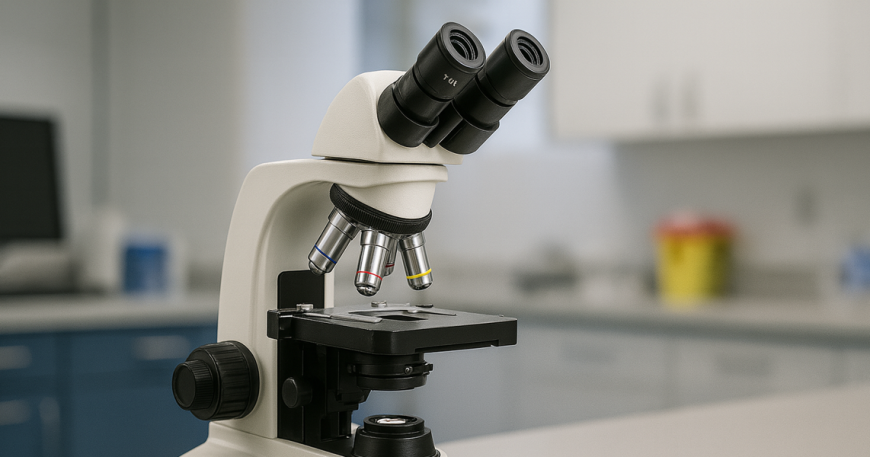Artificial intelligence (AI) has moved rapidly from theory to practice in the life sciences. What began as a promising tool for handling large datasets is now transforming the way new medicines are discovered, developed and delivered. At a time when the demand for faster, more efficient and more cost-effective drug development is growing, AI is offering new possibilities that could reshape the sector for years to come.
The traditional process of drug discovery is lengthy and costly. It can take more than a decade for a new therapy to reach patients, with billions of pounds invested along the way. Many candidates fail during trials, often because early signals of safety or effectiveness were missed. AI is now helping to address these challenges by enabling researchers to analyse complex biological data, predict how molecules will behave, and identify potential drug targets far more quickly than before.
One of the most striking developments has been the application of AI in protein structure prediction. Systems such as DeepMind’s AlphaFold have demonstrated that machine learning can solve biological puzzles that once took years of laboratory work. The ability to predict protein folding with accuracy has already accelerated research into rare diseases and new treatments, opening opportunities for scientists worldwide. This step change illustrates how AI can reduce bottlenecks in discovery and free up resources for more targeted experimentation.
AI is also beginning to influence clinical trials. By analysing electronic health records, imaging data and genetic information, machine learning tools can help identify suitable participants more efficiently. This can make trials more representative and reduce delays in recruitment. Once underway, AI can monitor patient data in real time, flagging potential safety issues or highlighting early signs of efficacy. These improvements not only cut costs but also shorten the time it takes to bring effective treatments to patients.
The promise of AI does not end at discovery and trials. In manufacturing and supply, predictive algorithms are being used to optimise processes and reduce waste. In clinical practice, decision-support systems are helping clinicians tailor treatments to individual patients, a step closer to the long-held ambition of personalised medicine. Together, these developments suggest that AI is becoming an essential thread running through the life sciences value chain.
However, the use of AI in drug discovery is not without challenges. One key concern is the transparency of machine learning systems. Many models operate as ‘black boxes’, generating results without clear explanations of how they were reached. This creates difficulties in validating findings and ensuring regulatory compliance. Another challenge lies in data quality. AI is only as effective as the information it learns from, and inconsistent or biased datasets can produce flawed results. For regulators and industry leaders alike, establishing standards for data governance and algorithmic accountability will be essential.
There is also the question of skills. The integration of AI requires life sciences professionals who understand both biology and computer science, a combination that is still relatively rare. Universities, research institutes and companies are now investing in training programmes to build this expertise, recognising that human capital is as vital as technological progress.
Regulators, too, are adapting. The UK Medicines and Healthcare products Regulatory Agency and its international counterparts are exploring frameworks that allow the safe integration of AI into research and clinical practice. Clear guidance will be crucial for companies seeking to demonstrate the safety and efficacy of AI-enabled approaches. Without it, the promise of innovation may be slowed by uncertainty.
Despite these hurdles, the momentum behind AI in drug discovery is undeniable. Investment is rising, collaborations between technology firms and pharmaceutical companies are growing, and early successes are encouraging greater adoption. The sector recognises that while AI will not replace human expertise, it can augment it in ways that make science faster, smarter and more efficient.
As Life Sciences Week celebrates the innovation driving the UK’s research base, AI stands out as a powerful example of how technology can transform healthcare. It offers an opportunity not only to improve the efficiency of drug development but also to rethink how science itself is conducted. By combining rigorous research with cutting-edge tools, the sector can unlock discoveries that once seemed out of reach.
The challenge now is to harness AI responsibly. That means investing in robust datasets, ensuring transparency, training the workforce and building regulatory frameworks that keep pace with innovation. If these steps are taken, AI has the potential to reduce costs, accelerate timelines and bring new hope to patients around the world.
The future of life sciences will always depend on careful, evidence-based research. But with AI at its side, that future looks increasingly capable of meeting the complex healthcare needs of tomorrow.




